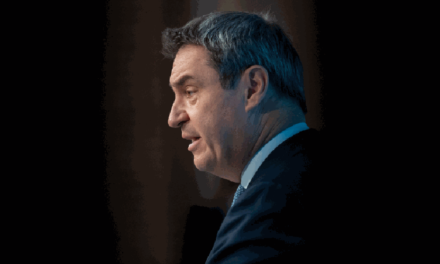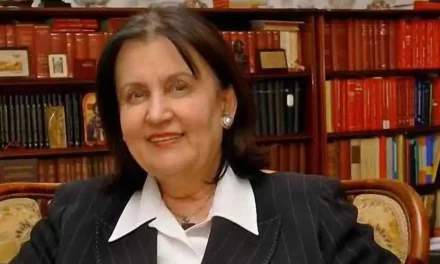Below the surface - on the island of Bali, not the G20, but the "G21" met, as Klaus Schwab was also there, who very skillfully, with German diligence and precision, strives towards his great goal of world governance.
On November 15-16, the annual regular meeting of the world's most economically powerful countries was held on the Indonesian island of Bali, and as always, a resolution was adopted at the end. However, it would be worthwhile to rename the G20 to G21 from now on, because this time not only the biggest countries took part in the meeting of the great powers, Klaus Schwab, the president of the World Economic Forum (WEF), was also there and gave a long speech. His performance received a standing ovation from world leaders. Among the guests were Elon Musk and Bill Gates. But the most important non-"traditional" head of state was clearly the head of the WEF.
With this, a new era was born. The age in which even a global leader is an integral part of the meeting of states, and not only in some kind of protocol way, but based on the real balance of power.
Klaus Schwab and his forum will, as I see it, become an integral part of the world meetings of the great powers. Why? Because the power of the WEF is even greater than that of the great powers. It is good to treat this as a sociologically and economically verifiable fact. In essence, the WEF is one of the custodians of the world governance planned by the globalists for decades, if not already today.
But in order to understand this gigantic change and its significance, we need to know how and why the World Economic Forum has so much power, which practically elevates it above nation states.
A brief history: the WEF was established in 1971 by the German economist Klaus Schwab, who was a student of Henry Kissinger and enjoyed the versatile support of his teacher. All the more so because Kissinger also always thought in terms of world governance, and Schwab proved to be a good student. With the support of Kissinger, he established the WEF, which he initially called the European Management Forum, later, in 1987, it received its current name.
Its headquarters is located in the Swiss canton of Geneva, in a certain place called Cologny, but the regular annual meetings are held in Davos, also in Switzerland.
Multi-companies, governments, trade unions, non-governmental (NGO) organizations, prominent representatives of the media, and well-known public figures appear at the WEF's annual gatherings - so practically everyone who "matters" in this wide world. About 2,500 people used to attend the Davos meetings celebrated by Schwab. The numbers speak for themselves: WEF has 1,595 gigacompanies, 364 government leaders, 246 NGOs and 234 media representatives as members.
Christine Lagarde, former head of the International Monetary Fund (IMF) and now head of the European Central Bank, can be found on the board of trustees of the World Economic Forum, but the current head of the IMF, who is currently the Bulgarian Krisztalina Georgieva, cannot be left out either. Moving on, we can find Ursula von der Leyen, the president of the European Commission, on the board of trustees, who is said to represent the interests of the European people through fire and water - but mainly through vaccine businesses.
We can also mention Tony Blair, who was the Prime Minister of the United Kingdom. Another important person is David M. Rubinstein, who is also a member of several global organizations (Tripartite Commission, Atlantic Council, Bilderberg Group, etc.) and, incidentally, one of Ursula von der Leyen's most important advisers. Let's continue with Al Gore, who ran in the US presidential election in 2000 as a Democrat against George W. Bush, but then and since then he travels in businesses related to the thesis of global warming. And finally, we should also mention Jack Ma, who is none other than the head of one of the largest Chinese companies, Alibaba.
Based on all of this, it is perhaps not a great boldness to state that Klaus Schwab has been one of the most influential leading personalities in the entire world since the 1980s, since in the WEF (very consciously) not only Western countries, companies, politicians and public figures participate, but it also includes leading personalities from many emerging and developing countries in Asia, Latin America, and Africa. In fact, it is also necessary to point out the strangeness, perhaps at first surprising, that China generally plays a serious role within the WEF, and that the President of China, Xi Jinping, is able to work well with Klaus Schwab. So much so that none other than Schwab's son undertook the representation of China's interests within the WEF.
By the way, China is important to Schwab, who thinks about world governance, not just because of its enormous development and its decisive weight in the world economy, but also because during the transition from a planned economy to a state market economy, it preserved the centrist, dictatorial structures of the Maoist era, and therefore the Chinese government can operate in an authoritarian manner.
Since Klaus Schwab himself sees democracy as an uncomfortable and disturbing situation, he can therefore look with express sympathy to China, which has already proven during the pandemic and is still proving to this day that it does not tolerate any contradictions on the part of the people, total closures, people's maximum he set himself the goal of control, and in this - so to speak - he has achieved good results so far. It is therefore no wonder that for Schwab, China is doing exemplary work in the direction of global and total power, and in this, if possible, they work together, obviously giving each other room.
Unfortunately, I have some bad news: Klaus Schwab is pursuing his great goal, world governance, towards a neo-communism that, according to their own propaganda, will be a world in which "we will have nothing, but we will be very happy" very skillfully, with German diligence and precision. And his methods are very effective: when Schwab was studying at Harvard Business School, Kissinger was already thinking about creating a management course and forum, the implementation of which seems to have been entrusted to Schwab.
The ambitious president made Kissinger's dream a reality: in 1992, he launched the Global Leaders for Tomorrow program, in which he invited around two hundred young politicians, economists, public life and media personalities - under the age of forty - from all over the world to , to take part in its program, the aim of which is to prepare in the spirit of the value system envisioned by the WEF for leadership in various parts of the world, for participation in the global elite - in order to create a beautiful new world. (In order to hire Angela Merkel, the age limit was then raised to 43.)
In 2004, the course for training the world's future leaders was reformed, with a new name: Young Global Leaders, and it is now a five-year course during which carefully selected young people are introduced to the goals and principles of the WEF. Of course, they also make sure that if the young people meet the great ideals and visibly represent them, they use their gigantic influence to bring them to the highest positions. However, I must point out here: for the sake of appearances, those who did not agree with what was said there were also admitted to the courses, and they remained national, conservative, and sovereignist politicians. Among them is, for example, the German economist Richard Werner, who totally opposed the basic principles of the WEF and became a harsh critic of the spirit and worldview of the forum - and there are others outside of it.
I should also mention here that in 2012 Schwab launched another program, namely the Global Shapers Community, which also recruits young people from all over the world, but now under the age of thirty. About 1,300 people took part in the first two programs, while about ten thousand have participated in the third course so far.
That is why the economist Ernst Wolff rightly says that the WEF has played a decisive role over the years in creating a new world order that undermines democratic principles all over the world. According to him, the consequences are far-reaching and devastating for all of humanity.
That's all I wanted to tell the readers. So that - quoting Ady - "they see when they see, they see when they see".
The author is a political scientist and a research consultant at the Center for Fundamental Rights
Cover photo: Illustration / Klaus Schwab at the World Economic Forum in Davos (Photo: MTI/EPA)
You can read the original article in Magyar Nemzet .












